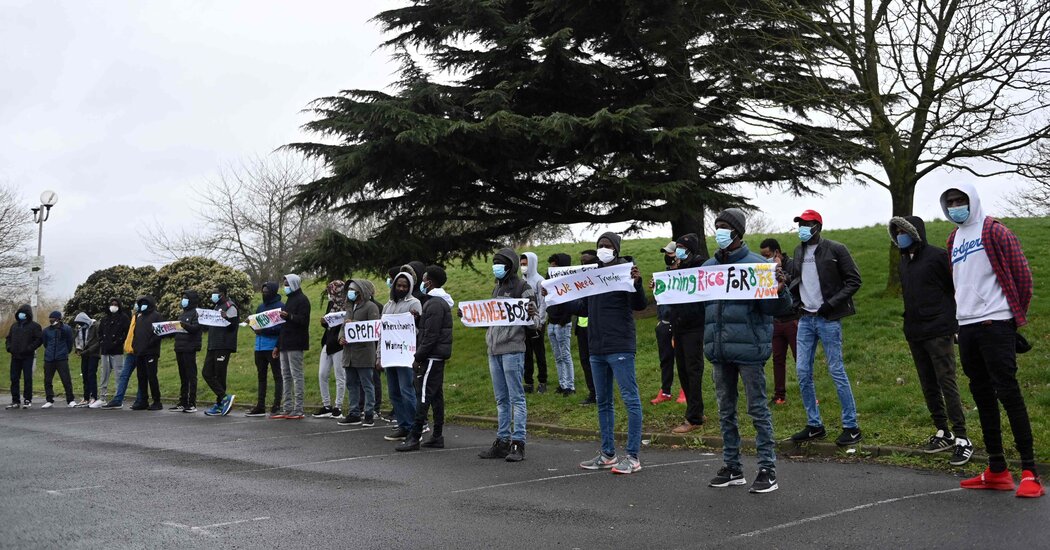
As of Monday, 16,400 Ukrainian refugees had arrived in Britain under the programs, and 56,500 visas had been issued, according to government data.
“There is no difference between the risks facing Ukrainian refugees and the risks facing refugees from other conflict zones across the world,” Mr. Hewett said. “And the response from the U.K. government needs to be consistent. They can’t have an open door for one group, and at the same time, be slamming the door shut on another group.”
For the British government the pressing issue is its failure to curb the arrival of a small but steady flow of people making dangerous, sometimes fatal, crossings, often on unseaworthy boats, across the English Channel from France. While the number of people arriving in Britain by boat is not high by international standards, the channel crossings have been a persistent embarrassment to Mr. Johnson’s government.
Migrants arriving on British shores currently have the right to claim refugee status under international agreements. Of those applying for asylum, almost two-thirds were found to be genuine refugees in 2021.
The choice of Rwanda raised concerns among advocates because of a troubled human rights record that Britain itself has previously questioned. But it is regarded as a stable country with a track record of accommodating displaced people.
In 2017, it offered to receive up to 30,000 African migrants who had faced discrimination, trafficking and violence while in Libya, and overall it has welcomed almost 130,000 refugees or asylum seekers, mainly from the Democratic Republic of Congo and Burundi.
Mr. Johnson also laid out some conditions that seemed further intended to discourage migrants. He said that asylum seekers would, on arrival in Britain, be housed in centers, rather than hotels, and that the Navy would take an enhanced role in tackling the Channel crossings. “They’ll be housed in accommodations like those in Greece,” said Mr. Johnson, referring to the camps there, some of which have earned a reputation for dismal conditions.




